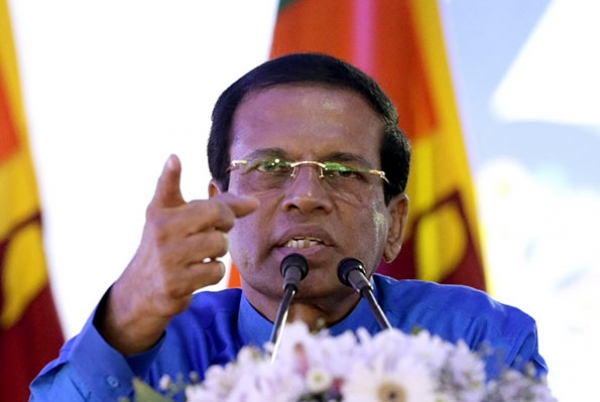The Sri Lankan government should drop plans to resume executions, which would end an unofficial 43-year moratorium in the country, Human Rights Watch said today.
The Human Rights Watch statement came as a response to President Maithripala Sirisena's remark that a date had already been set to resume carrying out death penalty in drug trafficking cases.
“There is no reason to bring the death penalty back to Sri Lanka after a four-decade moratorium,” said Meenakshi Ganguli, South Asia director at Human Rights Watch. “President Sirisena’s decision to restore the death penalty because he was inspired by the Philippine’s murderous ‘drug war’ may be the worst possible justification and would violate international law.”
The alleged deterrent effect of the death penalty has been repeatedly debunked, Human Rights Watch said. In 2015, the UN assistant secretary-general for human rights, Ivan Šimonović, stated that there was "no evidence that death penalty deters any crime. Even with respect to murder, an Oxford University analysis concluded that capital punishment does not deter “murder to a marginally greater extent than does the threat and application of the supposedly lesser punishment of life imprisonment.”
Imposing the death penalty for drug offenses would violate Sri Lanka’s international human rights obligations, Human Rights Watch said. The International Covenant on Civil and Political Rights, to which Sri Lanka is party, states in article 6 on the right to life that the death penalty “may be imposed only for the most serious crimes.” The UN Human Rights Committee, which monitors state compliance with the covenant, said that “most serious crimes” applies “only to crimes of extreme gravity, involving intentional killing. Crimes not resulting directly and intentionally in death, such as drug offences, although serious in nature, can never serve as the basis, within the framework of article 6, for the imposition of the death penalty.”
Sri Lanka was one of the first countries in South Asia to cease carrying out the death penalty. In December 2018, Sri Lanka joined 120 countries at the UN General Assembly that voted in favour of a resolution on the “Moratorium on the use of the death penalty.” Only 35 countries voted against the resolution. Human Rights Watch opposes the death penalty in all circumstances because it is inherently cruel and irreversible.
“The Sri Lankan government should publicly recommit to its moratorium on the use of the death penalty with a view to permanently abolishing the practice,” Ganguly said. “Executions, whether imposed by a judge or carried out unlawfully by the police, are not the way to address drug offenses.”










